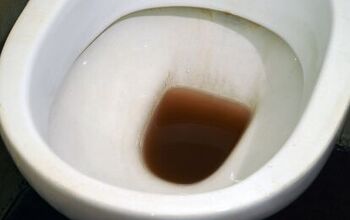How To Prevent Aquarium Fish From Breeding

Some types of fish, such as guppies, reproduce so quickly, that it’s hard to keep up with it. This can soon become a problem if you don’t have much tank space or simply don’t want baby fish. Understandably, you may not know how to prevent aquarium fish from breeding.
The best way to stop fish from breeding in your aquarium is to separate them by gender. For example, you can keep one tank with only females and another with only males. Otherwise, you can keep males and females of different species in the same tank and they won’t be able to breed.
Quarantine pregnant fish and separate the babies when they’re born to protect them. After that, you can sell them, give them away, or simply put them in the general population after a month. Follow along as we explore how to prevent aquarium fish from breeding.
How Do You Stop Fish From Breeding In A Tank?
1. Stick To One Gender
The easiest way to prevent aquarium fish from breeding is to stick to one gender. Simply keep only males or females in your fish tank if you’re concerned about breeding. Fish of the same gender cannot physically breed, so you won’t have anything to worry about.
You can even separate the males and females between two tanks. They will still have a great quality of life, and the separation won’t affect their health.
2. Make Breeding Difficult
Fish rely on specific conditions to breed, whether they’re in the wild or in an aquarium. This includes everything from water temperature to pH level. Keep in mind that the ideal breeding conditions vary between types of fish.
Look into the breeding conditions for the types of fish you have in your tank. For example, you may need to adjust the tank’s temperature or even the feeding schedule for your fish. Depending on the species, they may stop breeding if you change the lighting setup.
However, it’s important to make sure that these changes won’t negatively affect the health of your fish. Keep a close eye on your aquarium after you make changes to make sure your fish are healthy and happy. Even the slightest changes in an aquarium can make unhealthy bacteria thrive, so make changes slowly.
3. Carefully Choose Your Fish
The types of fish you put in your tank have a lot to do with how much breeding you can expect. Some fish, such as guppies and cichlids, breed quickly, especially if you have males and females in the same tank.
Avoid live-bearing fish if you’re worried about your aquarium becoming overpopulated. However, fish that lay eggs are easier to deal with, as there’s a chance the eggs won’t make it. That’s especially true if you have many breeds of fish in the same aquarium. Aggressive fish may eat the eggs, or the water conditions may prevent the fish from hatching.
What To Do If You Have Too Many Baby Fish In Your Tank
It’s easy to get overwhelmed if you have too many baby fish in your tank. Not only are they hard to keep track of, but they may negatively affect the other fish in your tank. Let’s explore what you should do if many of your fish breed quickly and you’re stuck with too many babies.
Sell Some Of Them
Do you have more baby fish than you can handle? In that case, you can likely sell them or give them away to other fish enthusiasts. Granted, you won’t make much money, but it’s more important to get them out of the way if you don’t have enough space.
You can sell them for up to $1 per guppy, or possibly more if it’s a sought-after species. Simply look online for the average prices for whatever type of fish you plan to sell. Some pet stores accept fish, or you can sell them online via Craigslist or Facebook Marketplace.
Wait It Out
If you have a diverse fish tank, there’s a good chance that many of your baby fish won’t survive. It sounds dark, but aggressive fish often eat baby fish in aquariums. Even guppies that give birth sometimes eat the babies in a tank.
Some people even purposefully put aggressive fish in their tanks if they have too many babies. It’s part of the life cycle of many fish in the wild, so it’s natural.
Quarantine Them
You may understandably want to protect the babies in your fish tank, even if there are too many of them. In that case, your best bet is to temporarily quarantine them. Some people quarantine fish for 2-4 weeks whereas others keep them separated for 3 months.
It’s easier to quarantine baby fish if you separate the pregnant mother fish before she gives birth. You can tell a fish is about to give birth if they’re quite large and they’ve been pregnant for a while. For example, female guppies are typically pregnant for a month before they give birth.
Put a tank divider in your aquarium and move the pregnant fish into a separate area. Separate the mother from the babies before she has the chance to eat them, as that’s quite common. Wait until they’ve grown to move the babies in with all the other fish and stick to a standard eating and activity schedule.
How Do I Know If My Aquarium Is Overpopulated?
You can tell your aquarium is overpopulated if your fish have little space to move, and there is a lot of conflict. Fish are more prone to conflict when they are crowded and feel the need to compete for food. The rule of thumb is that you should only have 1” of fish or less per gallon of water in your tank.
If you have more fish than that, then you must move some of them to another tank. Overpopulated tanks are prone to ammonia and nitrate problems because of the excessive waste. The fish may also gasp for air and act lazy and tired if they are overcrowded.
That’s because there is less oxygen available if there are too many fish for the amount of water. You will also notice that the water gets dirty much faster than it should if your tank is overpopulated.
Summing It Up
Keep only males or females in your aquarium so your fish cannot breed. It also helps to keep a variety of different fish species in your tank so they cannot reproduce. Otherwise, you can adjust the temperature or pH level to differ from the ideal breeding conditions for your fish. Sell your extra fish if you have too many, to avoid tank overpopulation.
Related Guides:

Nick Durante is a professional writer with a primary focus on home improvement. When he is not writing about home improvement or taking on projects around the house, he likes to read and create art. He is always looking towards the newest trends in home improvement.
More by Nick Durante












![10 Best Electric Pressure Washers – [2022 Reviews & Guide]](https://cdn-fastly.upgradedhome.com/media/2023/07/31/9070600/10-best-electric-pressure-washers-2022-reviews-guide.jpg?size=350x220)














